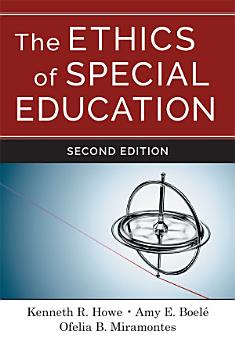The Ethics of Special Education
អំពីសៀវភៅអេឡិចត្រូនិកនេះ
“Readers of The Ethics of Special Education will find real-world ethical dilemmas that reflect the current laws and trends in special education policy and practice. As a researcher in the field, a lawyer, a former teacher, and as a parent, I recommend this book for all those who help students with disabilities succeed in life. This casebook highlights the importance of reasoned exploration and empathy when attempting to solve the kind of hard questions faced by members of school communities across the nation. There are no simple answers, but for all stakeholders, this book will help you develop a clearer understanding of sound approaches to the difficult problems that you will likely grapple with.”
—Daniel Losen, director, Center for Civil Rights Remedies
“Opportunities to access, participate, and learn alongside a diverse range of public school students are vital to the success of students who have dis/abilities. It has never been more important for educators to work deliberately and ethically to ensure that their choices for curriculum, pedagogies, and learning outcomes benefit the learners they serve. Neoliberal politics, raced assumptions about what counts as learning, and the forced march towards globalization challenge educators. Decisions about who enters special education, for what purpose and whose benefit, are fraught. Howe and Boele’s new edition extends the vision that Miramontes had for schools that embraced all who entered.”
—Elizabeth B. Kozleski, University of Kansas




